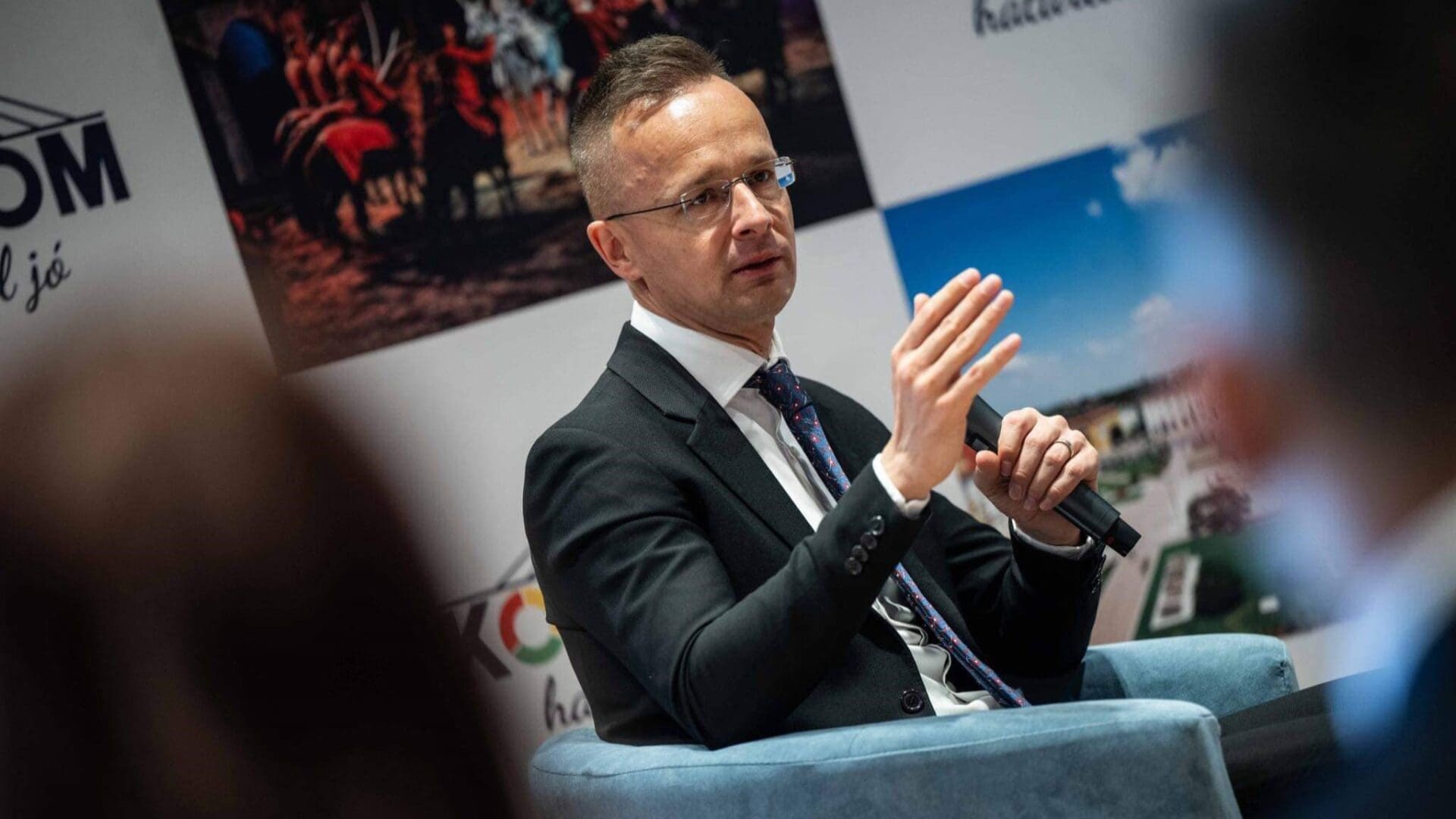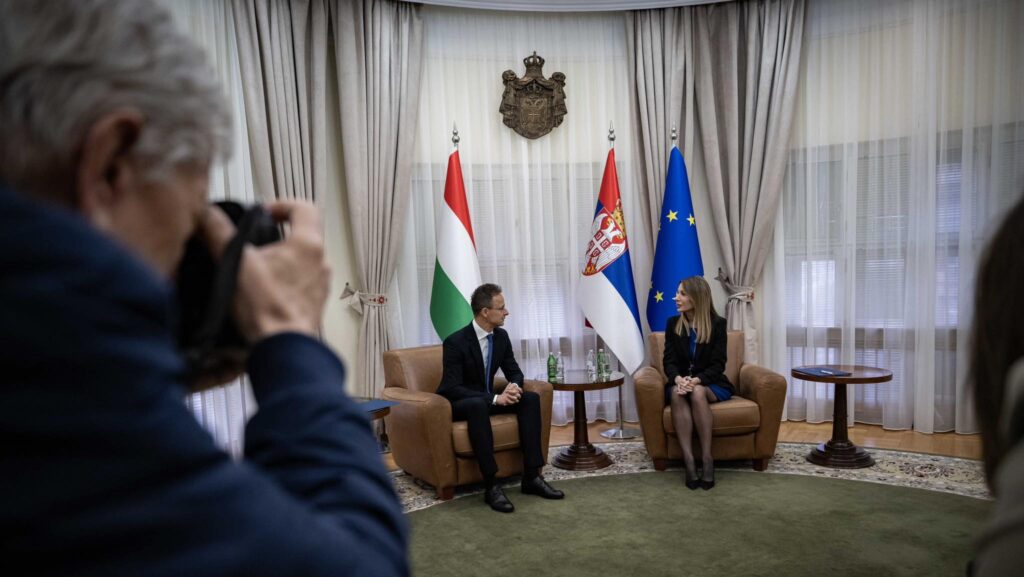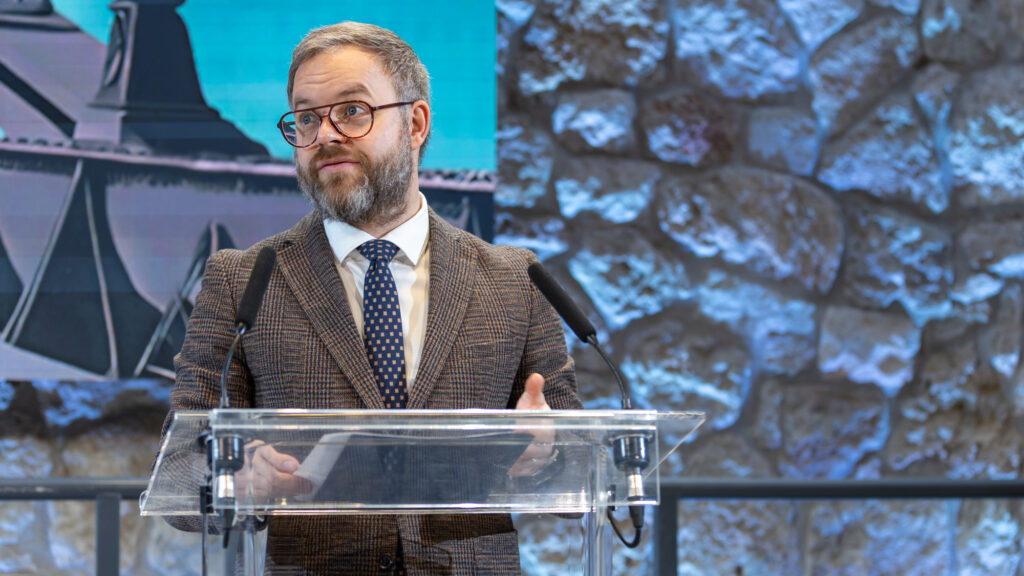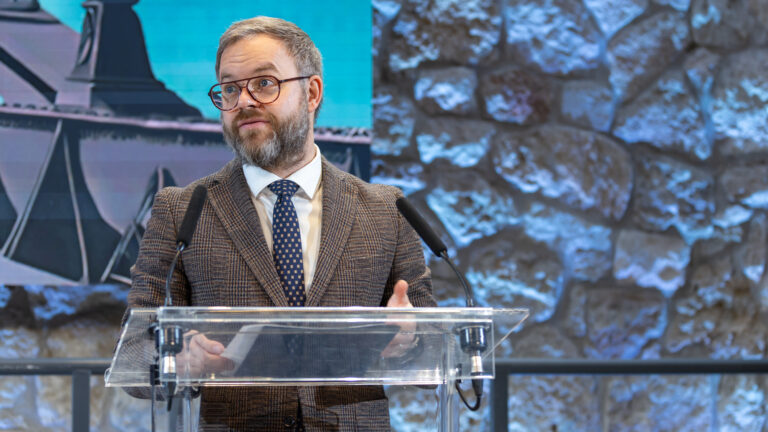‘Hungary’s long-term development trajectory is positively influenced by agreements with the Chinese President,’ Péter Szijjártó stated on public Kossuth radio on Sunday.
The Minister of Foreign Affairs and Trade described the Chinese President’s three-day visit with a 400-member delegation from four perspectives as historically significant. He explained that it has been twenty years since a Chinese President last visited Hungary; moreover, this year marks the 75th anniversary of the establishment of diplomatic relations between the two countries.
China significantly outpaces Western economic processes in the fundamental processes of the world economy, ‘and
the key to Western economic strategic success lies in good cooperation with the Chinese economy.’
Additionally, ‘the leader of the world’s peace-seeking majority during wartime has come,’ he stated. Szijjártó emphasized that the relationship between the two countries has been elevated to a level of strategic partnership cooperation, a category in which the Chinese only recognize five countries, with Hungary being the only one in Europe. Beyond this, there exists only one category, which includes the Russian–Chinese relationship. The Minister explained that the transition of the automotive industry to electric propulsion will most significantly influence future developments in the world economy. ‘Where investments related to this technological revolution arise, there will be the jobs of the future, livelihoods, secure incomes, economic growth, and economic power,’ he opined.
He added that among the most successful electric vehicle manufacturers and electric battery manufacturers in the world, many are Chinese, and a significant portion of these companies have decided to bring their European manufacturing centres to Hungary. As an example, he mentioned that the BYD electric vehicle manufacturer and three Chinese electric battery manufacturers are building factories in Hungary.
A kínai elnök látogatása – tanulságok | A kínai elnök látogatása – tanulságok | By Szijjártó PéterFacebook
A kínai elnök látogatása – tanulságok
‘This has brought about a situation that has not been seen in the history of Hungarian economy for a very long time, where Hungary is leading in a technological revolution,’ he declared. He also noted that for a country to attract research and development centres, it is necessary to be present in production, ‘at least to a critical mass.’ ‘Today, companies participating in the electric car industry revolution
consider Hungary not only as a location for production but also for research, development, and engineering,’
he emphasized.
Szijjártó stated that they will focus on research and development in the nuclear field, the connection between the nuclear industry and health sciences, environmental protection, and recycling issues. The expansion of the Paks power plant is carried out by Rosatom, which decides who to involve in the work; mostly French, German, and American companies had been involved so far, he pointed out.
Regarding the situation in Ukraine, peace must be established, as further arms shipments cause more destruction and death; the Brussels and Washington responses have failed. Hungary and China want peace, which is why Hungary supports the Chinese peace initiative aimed at resolving the Russian–Ukrainian conflict. Referring to Hungary’s six-month EU presidency, the minister stated, ‘economic and business decision-makers know exactly that large European corporate strategies cannot be successful without Chinese supplies and partnerships with Chinese companies.’
Plans to separate the Chinese and European economies—mentioned by some left-wing politicians—must be prevented, Péter Szijjártó concluded.
Related articles:
Sources: Hungarian Conservative/Kossuth radio








